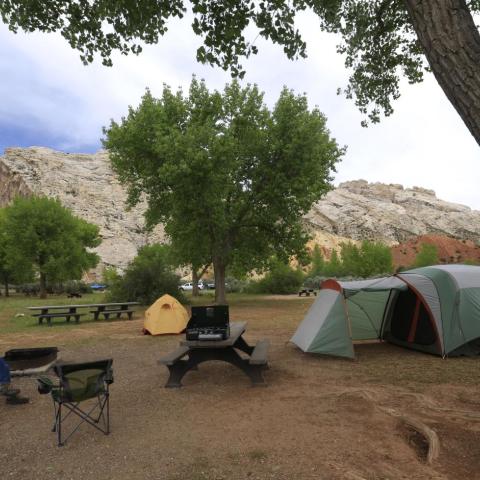
Rabbit hemorrhagic disease (RHDV2) was recently detected in wild cottontail rabbits inside Dinosaur National Monument / NPS
The National Park Service is asking visitors to take caution and not to approach wildlife, especially wild rabbits. Rabbit hemorrhagic disease (RHDV2) was recently detected in wild cottontail rabbits inside Dinosaur National Monument in Uintah County, Utah.
RHDV2 is a highly contagious and lethal viral disease among domestic and wild rabbits. The virus does not infect humans, but other causes of illness and mortality in rabbits can. The public is instructed to remain cautious and to follow the instructions below to protect themselves, pets, and rabbits in this area.
If You See a Sick or Dead Rabbit in Dinosaur National Monument:
- Do not touch or move dead rabbits.
- Notify monument staff if any dead rabbits are observed. Disposal of sick or dead rabbits requires special protective equipment that park staff are equipped to use.
- Provide the following information: Date observed; species if known (cottontail, jackrabbit, other), specific location; and a photo is helpful.
Protect Your Pets:
- Keep dogs on a leash (6 feet or less).
- Do not allow dogs to interact with sick or dead rabbits, or other wildlife.
RHDV2 is a highly-contagious calicivirus of domestic rabbits, cottontail rabbits, jackrabbits, and other hares. Other rabbit-like species may also be susceptible. Rabbit hemorrhagic disease is considered a foreign animal disease, meaning the disease is not typically found in the United States and is a threat to domestic and wild animal health. This virus is not related to the coronavirus causing COVID-19 in humans. Currently, very little data is available to predict the impact of this disease in North American rabbit populations; however, preliminary information suggests that mortality could be high, with population impacts to rabbits and species that prey upon rabbits. This virus can be transmitted among rabbits through contact with an infected rabbit, with body fluids or feces from an infected rabbit, or with a contaminated environment. The virus is very hardy and can survive on clothing, plant material, or other items that may be accidentally moved from an infected area. Before visiting other wild areas, wash clothing and disinfect footwear.


 Support Essential Coverage of Essential Places
Support Essential Coverage of Essential Places






